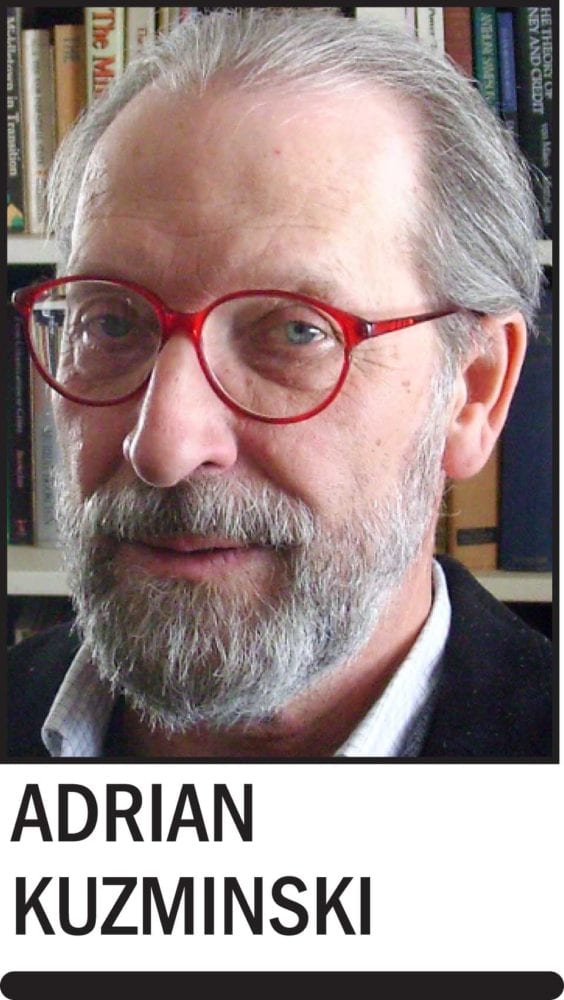The View From Fly Creek
Ensure Local Politics Are Local
 Everybody knows that it takes millions of dollars to run for the most important political offices, and even billions (counting PACs and ‘dark money’) to run for president.
Everybody knows that it takes millions of dollars to run for the most important political offices, and even billions (counting PACs and ‘dark money’) to run for president.
Although big campaigns can be funded by small donors (under $200 each), as Bernie Sanders has shown, most campaigns depend on large donors (up to and including more or less self-funded billionaire campaigns like those of Trump in 2016, and Tom Steyer and Michael Bloomberg this year).
It’s not a level playing field. Money can buy you a better ground game by hiring strategists, managers, pollsters, and field staff; it can also buy you a better mass media game by flooding printed and digital space with advertisements, news events and internet buzz.
This kind of money politics is very different from the personal politics we normally expect. The latter is rooted in a one-person-one-vote sense of fairness and democratic decision-making.
But that’s not how the larger political system works. It’s not about one-person-one vote, but many-dollars-many-votes. We have the right to vote, to be sure, and that remains a check of last resort against any politics we don’t like. But we only get to the voting booth at the end of a long process saturated with fake news, propaganda, hypocrisy and demagoguery. Even worse, our equal votes are made unequal through gerrymandering, voter suppression and unequal representation, as in the U.S. Senate and the Electoral College.
Finally, recent Supreme Court rulings – especially Citizens United v. FEC (2010) and McCutcheon v. FEC (2014) – have overturned limits on campaign contributions and institutionalized the big-money system of politics as a form of legalized corruption. Past attempts at campaign finance reform have focused on limiting how much individuals and organizations can contribute to political campaigns. But what they failed to address is the question of who should be eligible to financially support any particular campaign.
Currently there is no limit on how many political campaigns anyone can financially support. I live in rural Upstate New York, yet I am free to donate to anyone running for any office anywhere in the United States.
I can also contribute to national political parties and political action committees (PACs), which then cycle contributions back into political mobilization and organization throughout in the country. Corporations cannot make expenditures to influence federal elections, but they can contribute to political action committees.
Why shouldn’t I be free to financially support a candidate or cause anywhere in the United States? That sounds reasonable, until you turn the question around. Why should outside money routinely flow into the campaigns of my local state legislator or congressperson? Why should my representatives be beholden to interests outside of the district they represent?
Let me suggest an electoral reform. Call it district campaign financing. It would accept current laws limiting how much individuals and organizations can donate to political campaigns and organizations, but also insist that all political donations must come from within (not from outside) the electoral district in which the candidate or issue is on the ballot.
For instance, I must currently be a permanent resident of my town to run for town office. If district campaign financing were the law of the land, only permanent residents of my town, or other independent legal donors permanently headquartered in my town, could contribute to my campaign.
Similarly, anyone running for Congress could raise funds only from residents and legal donors within the Congressional district; and statewide candidates could raise money only within NYS; and so on. Only candidates for president could raise money nationally.
Independent legal donors within a district might include corporations, political action committees, political parties, and independent expenditure committees (super-PACs).
Under district financing, elected officials would no longer be torn between two masters, between the need to accommodate their voters on the one hand, and the special interests of outside donors on the other.
The idea of foreign money “interfering in our elections” has recently become a political football.
But we’ve had outside money “interfering in our elections” all along – money coming from outside the district in which the election is being held. If we’re going to continue to have money in elections (and it’s hard to see how we’re not), wouldn’t it be nice if it came from home?
Adrian Kuzminski, retired Hartwick College philosophy professor
and Sustainable Otsego moderator, lives in Fly Creek.

